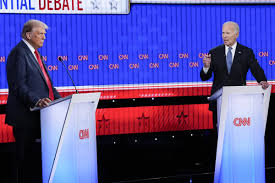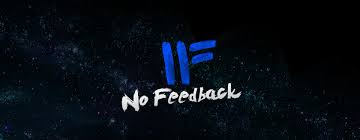My life, or at least accomplishment focus, runs in six-month cycles. I plan each half year in December and June, then proceed. As this cycle reaches its closing days, some reckoning on how I did and what contributed to the inevitable shortfalls has come due.
Closets: I had wanted to get my storage options more functional. While I could pay to have a closet fully remodeled professionally, the expense is not worth it for my closing years in my house, to say nothing of my wife's likely objections to the disruption this would entail. I regret not doing this maybe fifteen years ago. Instead, I selected a few closets to organize. I did OK. My half of my bedroom closet has usable floor space, cleared upper shelves, and removal of clothing that no longer fits. The three closets in the main bathroom have better utility. And the two in My Space, while not complete, now accommodate what once defaulted to the floor. Not a bad outcome for six months of mostly casual effort.
My Space: This one I had hoped to complete in its entirety, but I did not really give a full effort until done. There are usable zones. Loose items have been boxed. The corner desk has been made functional. Books under my control have been designated for donation, though not yet brought to their next destination outside my house. Not a bad result, and done without the help of a professional organizer.
Write Novel Draft: Began with optimism, closed with failure. I started by searching the web for how to do this, but got absorbed in the technicalities. I do not have an outline. I still would like to write a book in my lifetime but find myself more disheartened than I expected to be. I have a story that should be told, as all people probably do. Telling mine should be a primary focus of my effort. Learning how to do that effectively needs some investment of time, commitment, and perhaps money.
Read Three Books: My most easily filled initiatives. One must be traditional, e-book, audiobook. One must be fiction, non-fiction, Jewish theme. What I found, though, was an unusually high number of started but incomplete reading. My willingness to abandon what I started may or may not be a good thing. I like to have Grit, but plodding through what is not worth completing has some very big downsides.
Visit Three New Places: Did this and then some, though not entirely with intent. Went on a short vacation to a new town, toured a museum that I've wanted to explore. I also found myself at two places locally that I had never entered despite living in my home for forty years. My branch library closed for repairs, diverting me to a different one. Nice place but smaller. Also got invited to a reception at a college whose gates I had only passed but whose grounds and buildings I had never entered. Neither was particularly memorable, as the new town and the museum were, but they were new to me.
Submit Three Articles: Past rejections took their toll. I wrote quite a few pieces, all articulate, all likely to be declined, either because the writing wasn't good enough or the publication was not the right destination for what I created. In either case, I wanted to approach this project in a more rational way and took some steps to do that. Yet I remained primarily timid, avoiding the anticipation of rejection and the reduction in self-esteem that it brings. Be Bold appears on my Daily Task List. Often I am with people or organizations that I've established some element of rapport. Not Bold with strangers.
Three New Experiences: It had been my intent to purchase new experiences. White water rafting perhaps, maybe deep sea fishing. Drive cross-country. Have my hair done by a stylist, though I have had that at low level in the past. Or after years of unsuccessful fishing, maybe catch a fish. Or play a round of golf. Instead, I acquired the experiences but backed into each. My temporary headquarters library wanted me to pick up a reserved book from their drive-up window. I had never done that before. I went to a funeral where the surviving spouse arranged for an open casket ceremony. I won a raffle. None intended.
Three Guests in My Home: I hosted three Shabbos dinners as intended. All synagogue people. Unfortunately, I also hosted a Shiva house, also synagogue people.
Join Two Organizations: One came my way, sort of. The other came from my responsiveness to an inquiry. I had become vocal about some of the questionable deeds of Congregational Influencers, including a detailed conversation with the new Rabbi on targeted exclusions of people, with some side comments on what I regard as basic laziness. I've been among those snubbed, though only selectively. This fiscal year, they offered me a two-year term on their Board, which I accepted. My other attachment has been the Osher Institute. They broadcast to their enrollees a list of committees. I filled out my three preferences, got three responses, two invitations, and selected the most suitable.
Evenings with Wife: Recapturing, or really sustaining, courtship and early marriage with my wife has challenged me for sure, and likely her. Since retiring, I retreat to My Space while she watches movies and MSNBC attacks on a former President who deserves many of those attacks. While our interests diverge, our mutual affection has not. Yet we are in the same room too infrequently. I resolved to set aside two evenings a week to be adjacent to each other, touching each other. I did OK. Not perfect. Room for better consistency. This one's important. This one's harder than it looks.
Manage IRA Withdrawals: Hiring a financial advisor about a dozen years back turned out to be a wise decision. With the help of a new high paying job which I held for the closing eight years of my career, my savings have grown immensely. I've not touched them since retiring. Social security for myself and my wife along with her corporate pension annuity provides us more income than we can realistically spend. American tax law, however, allows us to to grow our income, though not forever. This year I must begin withdrawing the minimum mandated amounts from my two tax deferred accounts. It was my intent not to do the withdrawals until the second half of the calendar year but to decide on the process. As a federal employee early in my career, I accumulated a small account. By contacting the agency, I was told it could be tapped passively though it is in my interest to request the requisite withdrawal to avoid having them withhold 10% and reconciling with the IRS a year later. My private account is managed by the financial advisor. It comes in two components. One is a list of charitable contributions I want him to disburse to the various tax-exempt agencies. I do not have to pay personal tax on those withdrawals. The rest goes to my account. I have been keeping up with recording my charitable contributions on an Excel Spreadsheet each month, so compiling a list should not be that difficult. Then after Thanksgiving the rest goes to my joint account, less what Uncle Sam the Croupier skims off the top.
Health Targets: I did not reach my weight and waist goals. I did achieve a BP within accepted medical targets. Due to side effects of rosuvastatin, my PM cholesterol lowering therapy was amended to atorvastatin. My cholesterol has not yet been measured. I am waiting until the proximity of my next doctor's assessment, so I do not know if my lipid target has been achieved. Despite not reaching the data wish list, I have done an admirable job with scheduled exercise, some favorably revised dietary habits, and good adherence to medications as well as medical appointments. SMART goal as a Process, done. SMART goal as Performance fell short in some ways, which is why process is often recommended by planning experts.
So mostly I did well this cycle. Room for improvement as the next cycle approaches. Some of the initiatives will be extended an additional six months. Others are better replaced by new challenges.







